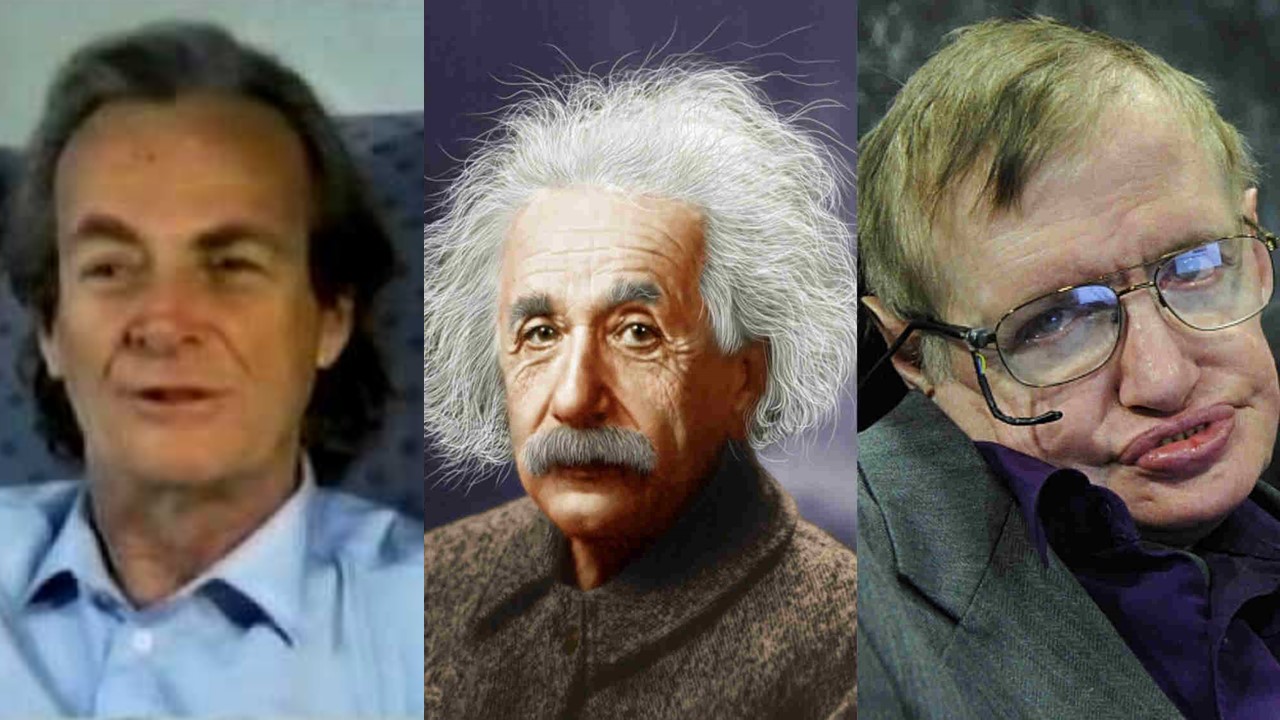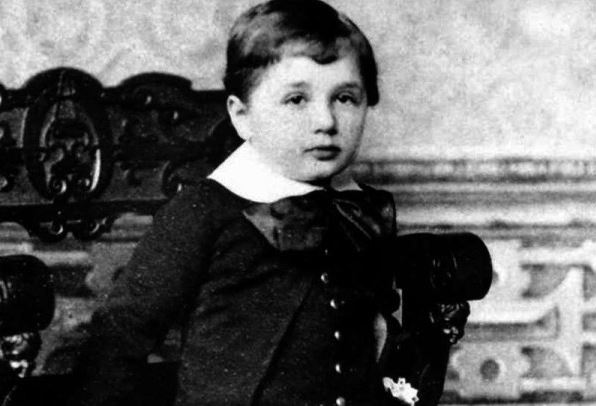
Steven Weinberg's four tips for aspiring scientists

Science is either physics or stamp collecting?

 |
| Rutherford's stamp |
Our body is a chemical engine and the food we eat are organic molecules. But just like biology, there is a lot of nomenclature and classification rules in chemistry to deal with. Chemistry is also not universally the same, like on different planets, but the laws of physics governing those chemistries are the same.
What Motivated Them To Become Physicists?

Richard Feynman
Albert Einstein

Stephen Hawking
Carl Sagan
Nikola Tesla
Jocelyn Bell Burnell

Marie Curie
Ed Witten
Summing up:
8 times when Nikola Tesla was wrong about physics

Nikola Tesla was a great Serbian-American engineer who played the major role in perfecting and promoting alternate current. He was also a visionary who predicted smartphones, renewable energy and creation of artificial Suns, much before time permitted.
However, it is surprising that Tesla sometimes took anti-science as well as anti-mathematics positions. Several of his views about the world were particularly pseudoscientific. So in this post, let us look at 8 instances when even the Genius Nikola Tesla was wrong.
On electrons
Tesla did not agree with the theory of atoms being composed of smaller subatomic particles. He thought that there was no such thing as an electron creating an electric charge and that it had nothing to do with electricity.
However, not only did the electron get discovered but also its properties and effects were measured by physicist J.J. Thomson at the start of the twentieth century. Without electron, technologies like the television couldn't exist.
On relativity
According to Nikola Tesla, Einstein's 1915 theory of general relativity was wrong. He commented in 1932: "I hold that space cannot be curved, for the simple reason that it can have no properties. It might as well be said that God has properties. He has not."

In 1935, Tesla told The New York times: "Einstein's relativity work is a magnificent mathematical garb which fascinates, dazzles and makes people blind to the underlying errors. The theory is like a beggar clothed in purple whom ignorant people take for a king."
In 2004, the gravity probe-b satellite was launched to measure the curvature due to Earth. Its data was analyzed by the Stanford University and it indeed confirmed Einstein's theory to a high degree of accuracy in 2011.
Furthermore, without relativity, the GPS would fail in its navigational functions and Google maps couldn't work to pinpoint precision.
On mathematics
Nikola Tesla said in 1934: "Today's scientists have substituted mathematics for experiments, and they wander off through equation after equation and eventually build a structure which has no relation to reality."
That may be true, although mathematics and experiments are both fundamental to scientific progress. There cannot be one without the other, especially in the field of physics.
At the same time in Europe, Dirac was trying to find an equation to unify quantum mechanics and special relativity. He predicted the existence of antimatter in doing so, which was discovered in 1932.
Even 16th century Galileo Galilei had a high regard for mathematics, when he said: Philosophy is written in mathematical language; without it one wanders in vain through a dark labyrinth.
On atomic energy
Tesla told The New York Times in 1931: "The idea of atomic energy is illusionary. I have preached against it for twenty-five years but there are still some who believe it to be realizable."
Because, as mentioned before, he did not trust the theory of subatomic particles. So according to Tesla, atoms were immutable – meaning that they could not be split or changed in any way.
Two years after Tesla's death in 1943, not only did the humankind split the atom, they also used it to end the World War II. Although it began a nuclear arms race and a call for disarmament – well that is another story in itself.
Today, atomic energy is a source of nuclear power – as predicted by physicist Lise Meitner – which is in turn used to generate heat and electricity. Moreover, scientists are also working on a large-scale fusion project called ITER for future electricity generation.
On EM waves
German physicist Henrich Hertz demonstrated the accuracy of Maxwell's equations when he successfully generated electromagnetic waves in laboratory.
Because Tesla did not have the mathematical advantage, he relied completely on experiments and his own experiments led him to erroneously believe that Hertz and Maxwell were wrong.
In one 1891 lecture, Tesla expressed openly his disagreements with Hertz – which is anyway healthy for the sake of scientific progress.
But over the next few years, several groundbreaking evidences were collected in the favor of Maxwellian electromagnetism.
In 1898, Tesla himself developed a radio based remote-controlled boat and yet till 1919 he did not believe in the existence of EM waves and in the theories developed by Maxwell and Hertz.
On wireless electricity
Tesla was a great visionary but his vision was not always practical. After perfecting alternate current technologies, Tesla wanted to make a new revolutionary change - render wires useless!
At first, Tesla decided to transmit electricity through air but rejected the idea later on. In 1902, Tesla completed the Wardenclyffe Tower to tranfer electricity via ground.
However, engineers pointed out that currents once injected into the ground would spread in all the directions, quickly becoming too diffuse to be usable over long distances.

In addition to engineering and financial problems, the dangers of wireless electrical power to nearby wildlife was not taken into account by Tesla. Thus, the Wardenclyffe Tower project had to be abandoned.
During the same time, Italian engineer Guglielmo Marconi - who unlike Tesla, believed in and worked with electromagnetic waves, succeeded in the wireless transmission of information, rather than electricity.
On science
Although Nikola Tesla was a brilliant engineer and inventor, he sometimes delved into pseudoscientific ideas which had no basis in reality and lacked experimental data – a quality he admired.
For example, Tesla once said: A single ray of light from a distant star falling upon the eye of a tyrant in bygone times may have altered the course of his life, may have changed the destiny of nations.
That thought, although poetically is beautiful, has no scientific weight. Distant stars and planets and their motions have no measurable effects on people. What changes destiny of nations is politics and the king's advisor would have had far greater impact than light of a far away star.
On radioactivity
In 1903, Marie Curie, Pierre Curie and Henri Becquerel won the Nobel Prize in physics for discovering evidence for radioactivity.
However, Tesla was not convinced since he did not believe that the atom was divisible and that it had internal forces and subatomic particles.
According to him, the phenomena of radioactivity was not the result of forces within the radioactive substance but by the rays emitted by the Sun.
He told The New York Times in 1931: If radium could be screened effectively against this ray it would cease to be radioactive.
Summing up
Nikola Tesla was a genius inventor and explorer whose work ushered the electrical revolution that transformed daily life. Einstein wrote to Tesla: As an eminent pioneer in the realm of high frequency currents... I congratulate you on the great successes of your life's work.

But at the same time Nikola Tesla was also human – jealousy, denial and frustration, played a big role in his professional life.
His frustration with advanced mathematics led him to incorrectly conclude that Maxwell's equations and relativity were wrong.
His denial of modern science left him too far behind his contemporaries – Marconi, Braun, Bose – in his ability to contribute to the wireless communication.
Surely, Tesla did achieve what others could only dream of. But the point is, not to put Tesla on pedestal, or build conspiracy theories in his favor, as many fans would want to do. It does not do justice to Tesla's brilliance.
Hawking's black hole theorem confirmed by gravitational waves


10 TV Shows That Physics Students Will Enjoy

1. Steins; Gate
2. Big Bang Theory

3. Star Trek

4. Doctor Who

5. Young Sheldon
6. Dr. Stone
7. Black Mirror
8. Rick and Morty
9. Battlestar Galactica
10. The Expanse
The Expanse which you can watch on Amazon Prime is a beautiful combination of space engineering and fiction. It has some of the best physics-based spaceflight and combat and an engaging story as well, according to one viewer.








 Physics, astronomy and science history blog for students
Physics, astronomy and science history blog for students